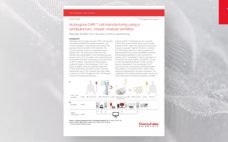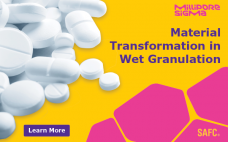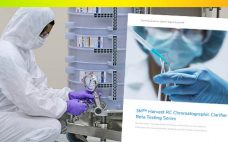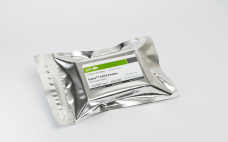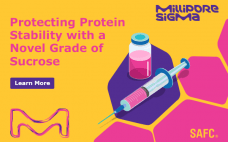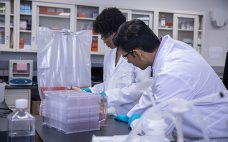There have been tremendous efforts to make CAR T-cells more effective, safe, and persistent when treating patients. On the manufacturing side, however, errors, lot-to-lot variation, and contamination can be associated with open processes and manual handling of CAR T-cells. Cell isolation, gene editing, expansion, and cryopreservation are complex steps in a typical autologous CAR T-cell manufacturing process. Integrating this complicated multistep workflow into a closed, modular, benchtop system can facilitate transitions from laboratory scale to clinical manufacturing and improve the…
BPI White Papers
7 Key Questions for Understanding the Benefits of Scale-out Biomanufacturing
Changes in production scale required due to increasing product needs throughout clinical trials introduces risk to the product development timeline. Both the process and the product can be dramatically impacted from scaling-up to larger production volumes due to changes in the bioreactor microenvironment. By “scaling-out,” instead of “scaling-up” these risks can be mitigated. The “scale-out” biomanufacturing paradigm, which involves simply adding one or more of the same-sized bioreactor to the manufacturing run to obtain the production volume required, can also…
Material Transformation in Wet Granulation – The Effect of Continuous Process Dynamics, Material and Formulation Properties
Continuous manufacturing (CM) is increasingly used as an alternative to traditional batch manufacturing of solid pharmaceutical dosage forms. Wet granulation is one of the manufacturing technologies that was successfully migrated from batch to continuous processing. Thereby, the residence time of material under (stress) conditions is significantly reduced which in many cases is a main advantage of CM. However, in other cases with slow transformation processes this raises new challenges. In particular, the question arises as to which process parameters and…
3M™ Harvest RC Chromatographic Clarifier Beta Testing Series Summary
Frost & Sullivan invited a panel of industry leaders and key opinion leaders in pharmaceutical bioprocessing to participate in a new and unique thought leadership forum, our Virtual Think Tank (VTT) Early Access series. Each VTT panel, comprising professionals from pharmaceutical companies, contract development and manufacturing organizations (CDMOs), and 3M Company, discussed the new 3M™ Harvest RC Chromatographic clarification technology following participation in a beta test program that allowed them early access to work with the product and provide hands-on…
Comparison of Gator BLI and Progen ELISA for Quantitation of AAV Serotypes
The determination of total capsid titer is one of the critical quality attributes for AAVs used in gene therapy. This application note presents quantitation of AAV serotype 2, 5, 8 and 9 using GatorPrime™ system and Gator™ AAVX probes, and compares the performance with Progen Xpress ELISA assay for the same serotypes. The Progen ELISA kit is commonly used for AAV quantitation and while it performs well, it has several drawbacks for routine operation, viz, need to dilute the samples…
Validated Quantitation and Activity Assay of Antibody Fragment Molecule (Fab) for Process Development and Quality Control
The analytical group at Boehringer Ingelheim, Fremont, USA needed a robust assay to measure the biological activity of an antibody fragment (Fab) molecule for in-process testing as well as stability and lot release testing in their Quality Control (QC) department. The developed Fab activity assay is accurate and robust, with intermediate and intramediate precision less than 10%. Drug activity measurement using the Octet® system has become a critical parameter for their product evaluation and has resulted in increased Fab drug…
Security of Supply Risk Mitigation in HCP Monitoring
The most common method scientists use to monitor host cell protein (HCP) levels in biologics is the enzyme-linked immunosorbent assay (ELISA). For the reagent, security of supply is a regulatory requirement — it’s a factor that’s critical to consistently monitoring HCP during biologic production. In this webinar, we discuss why security of supply is important, the consequences of not having it, and how to mitigate this risk. Topics covered Why security of supply is critical to your HCP plans Consequences…
The Production and Application of Antibody Fragments
Antibodies are modular defense systems that identify and neutralize foreign objects like bacteria and viruses. In addition to oncology and inflammation, antibodies are now recognized as routine molecules in many therapeutic fields. Antibody fragments, in particular the Fabs, scFvs and VHH retain full antigen-binding capacity and superior properties for research, diagnostic and therapeutic applications. They have a smaller size that enables their binding to hidden epitopes not accessible to whole antibodies. In the context of therapeutic applications, a small molecular…
Protecting Protein Stability with a Novel Grade of Sucrose
Ensuring the chemical and physical stability of the therapeutic protein is critical to the safety and efficacy of biopharmaceuticals and presents one of the major challenges in formulation. A number of excipients, including sugars, can be used to solve this problem. Sugars are stabilizers that maintain conformational stability by preferential exclusion and function as cryo- and lyoprotectors in lyophilized formulations. Given these properties, it is not surprising that sucrose is one of the most widely used stabilizers in marketed drug…
Human Umbilical Cord-derived Mesenchymal Stem Cell Production in Corning® HYPERStack® 36-layer Cell Culture Vessels
As more clinical trials are evaluating MSC-based therapies, the demand for more pertinent adherent scale-up tools is likely to increase. Corning® HYPERStack® 36-layer cell culture vessels offer a closed system solution for scaling up large quantities of quality, human umbilical cord-derived MSCs. Most importantly, the MSCs expanded in the HYPERStack 36-layer vessel expressed high percentages of CD90, CD105, and CD73, characteristic of MSC quality. The ability to grow large quantities of human umbilical cord derived MSCs with high viability and…

